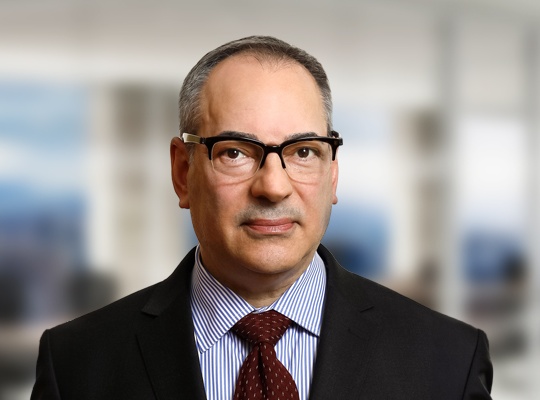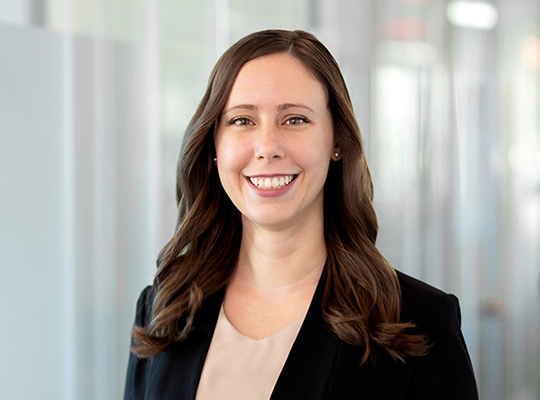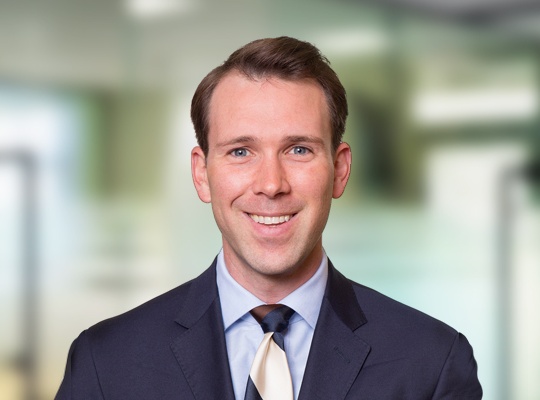Pride Month Spotlight
A Q&A with Members of Dechert’s LGBTQ+ Affinity Group
Dechert’s LGBTQ+ Affinity Group supports the development and retention of LGBTQ+ lawyers and educates others about the history and traditions of LGBTQ+ culture.
This Pride Month, we sat down with affinity group members Hayden Coleman (Partner, Product Liability and Mass Torts), Alyssa Clark (Associate, Product Liability and Mass Torts and a 2021 firm Diversity Champion) and Spencer Joffrion (Associate, Intellectual Property and a 2019 Diversity Champion) to discuss what pride means to each of them as well as their thoughts on allyship; strides made by the legal industry towards diversity and inclusion (D&I); and what employers can do to make sure their LGBTQ+ employees feel valued.
Why is Pride Month important?
Hayden: It’s incredibly important to have Pride Month to commemorate just how far we’ve come – and unfortunately what we have to lose. I’ll never forget my first Pride March; it was a march then – it didn’t become a Parade until much later. It was the mid-1980s and AIDS and activism were just becoming part of the public discourse. There was no such thing as being out at work if you had a professional job. And yet, all of these beautiful men and women took over Fifth Ave and marched up to Central Park [in New York]. I couldn’t believe it. I also couldn’t believe that there was hardly a mention of this event in the news the next day.
Fast forward a generation: being out in the workplace is the norm and corporation are falling all over themselves to sponsor Gay Pride events. That’s real progress. But it didn’t just happen. Pride Month is our opportunity to reflect upon how far we’ve come as a community, that we are a community, and to acknowledge that there are some very powerful forces that want to roll back the clock.
Spencer: For me, Pride Month (and in particular the marches, parades and celebrations that take place during this month) is an important reminder that I am part of a larger community. It is a time to consider where we can improve our community, but also to celebrate the advances that we have made and those that have led the way for us to get here. Pride is also an amazing time to revel in the joy of people celebrating what makes them unique…which usually involves dancing to a Whitney Houston remix.
From your perspective, what makes someone a valuable ally?
Alyssa: A valuable ally asks minorities how they can help amplify the minorities’ voices and is willing to speak up on issues that don’t directly affect them. A valuable ally also consciously questions their subtle and unconscious biases and actively works to confront those biases. If a valuable ally notices another person’s biases, the ally should raise the issue of the bias with the other person.
Spencer: An ally is someone that will provide support when you are not able or willing to provide it for yourself. This can take shape in many forms, but at its core requires that someone recognizes when someone else is in need and does something to help.
Of the initiatives that Dechert has undertaken towards diversity and inclusion (D&I), which are you most proud?
Spencer: I’m proud of the fact that people’s unique perspectives and ideas are not only encouraged but rewarded here. Dechert has a number of programs in place that are good representations of its dedication to diversity and inclusion (affinity groups, Star Awards, speaker series), but I think the most tangible evidence of this dedication is the fact that every day I get to work in an environment where I am comfortable being myself and do not feel as though I need to conform to a certain standard to be successful.
Alyssa: I’m proud of the adoption and surrogacy benefits the firm provides in the U.S., and which are in the process of being expanded globally alongside fertility benefits. Dechert is an industry leader on this front.
What do organizations need to do beyond Pride Month to ensure their LGBTQ+ employees and clients feel valued every day of the year?
Hayden: To me, it’s about money and resources. Are gay professionals being treated as well as their straight counterparts? Are they getting the same opportunities? Or is there a “lavender ceiling?” As we know, discrimination can be subtle and unconscious.
Alyssa: Rainbow washing does not equal allyship. Be sure your unconscious bias training includes LGBTQ+ individuals and that the training is mandatory. Ensure that there is LGBTQ+ representation for any LGBTQ+ company policy decisions. Donate time and resources to local LGBTQ+ organizations year-round. If your company advertises, be sure that you release ads that cater to the LGBTQ+ community during the other 11 months of the year.




